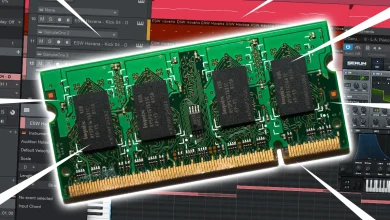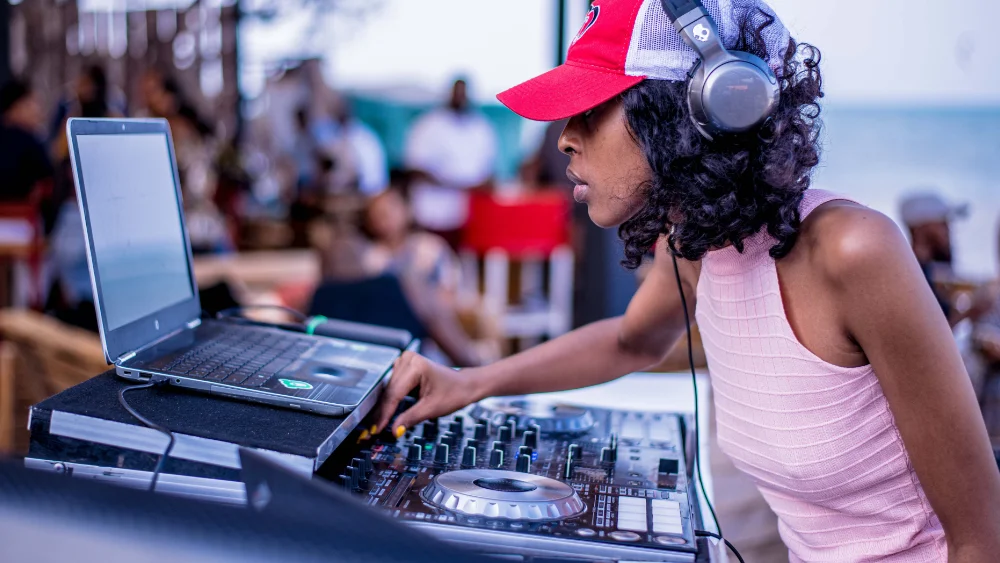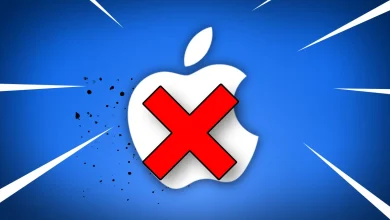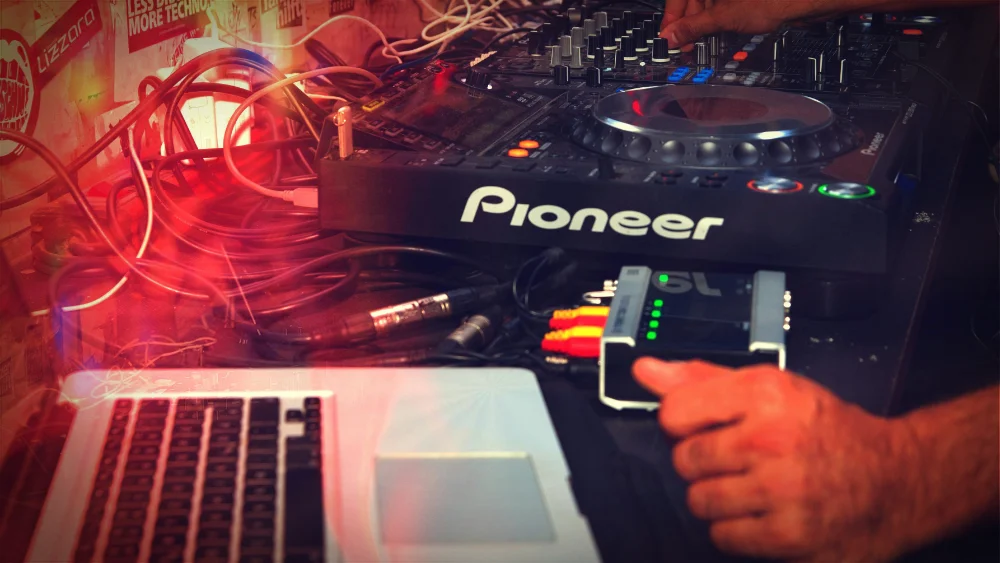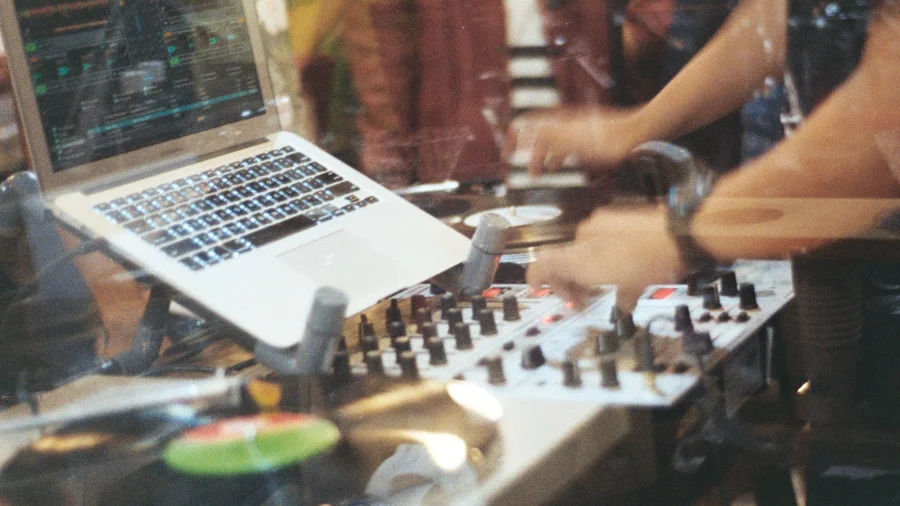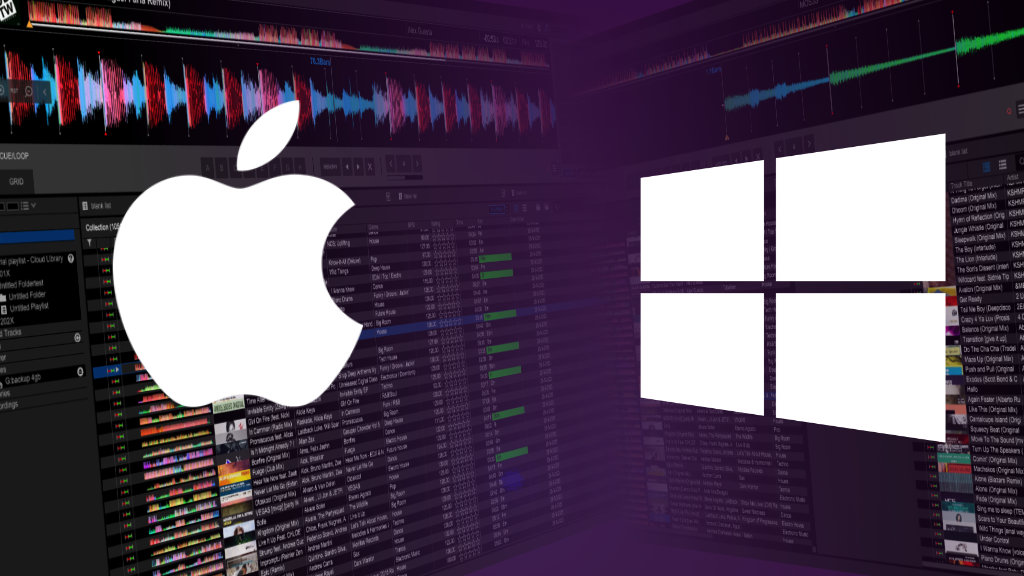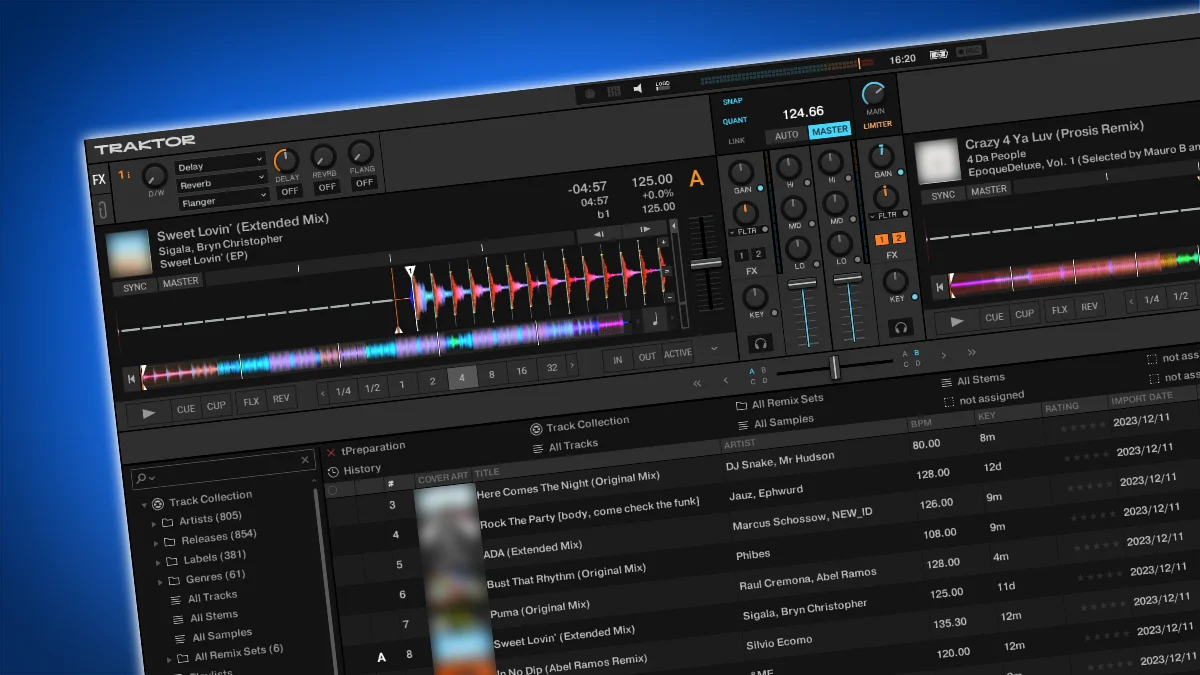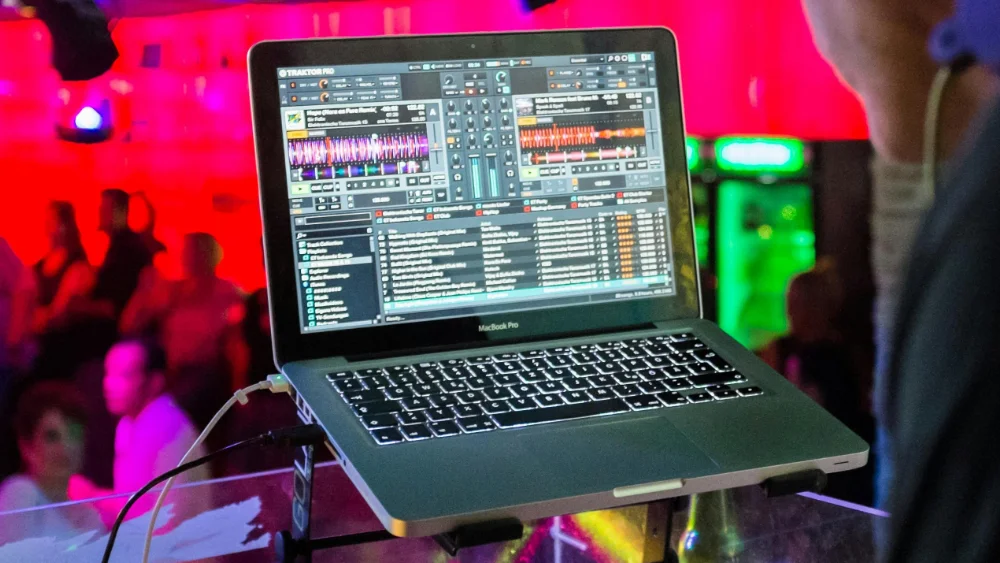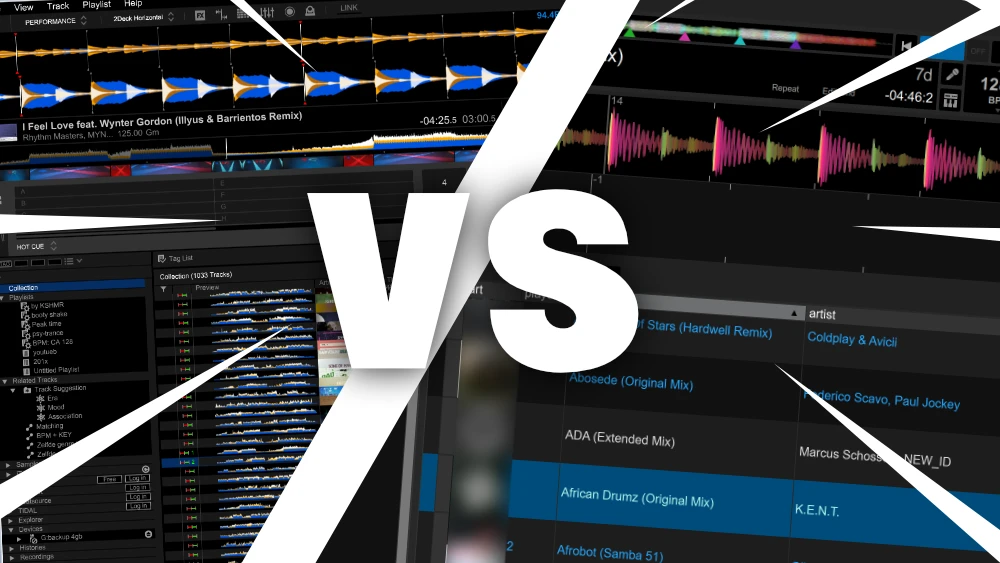Best processor for DJing 2026 – with performance tests!
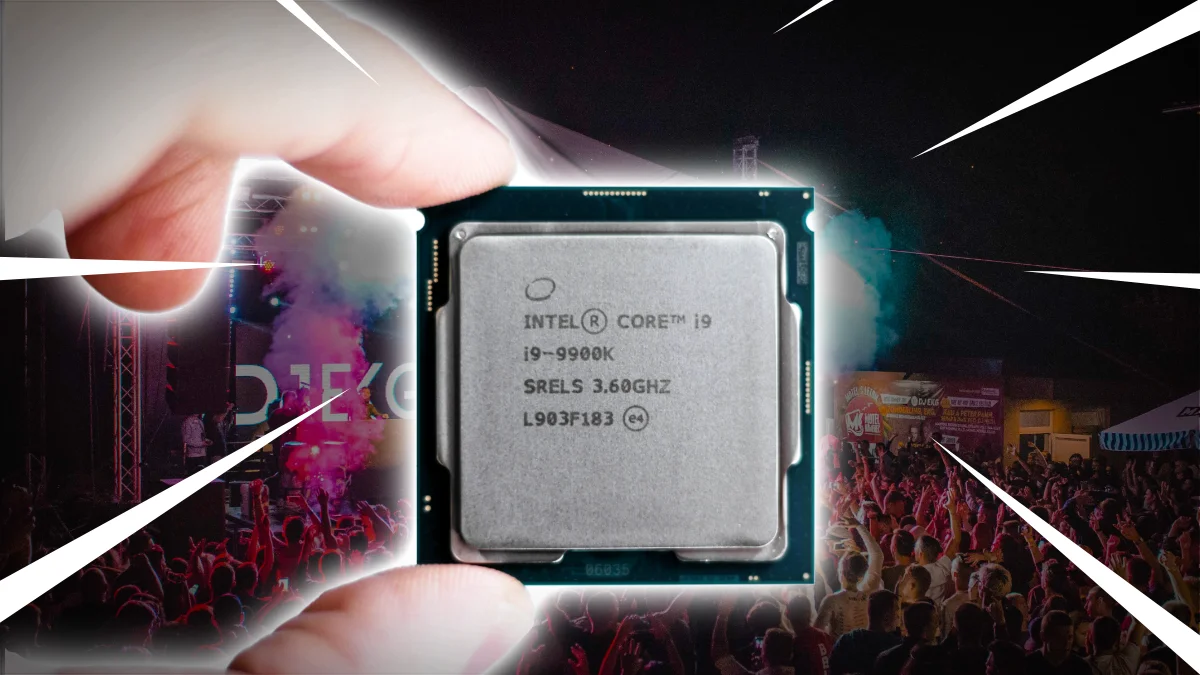
Table of Contents
- 2 types of DJ programs
- What is important?
- AMD, Intel or Apple?
- Performance tests
- Conclusion
- Read more
2 types of DJ programs
People confuse Music Production with DJing.
Both trades use vastly different software, with vastly different processor requirements.
If you are confused as well, you might want to read up on the difference between a music producer and a dj.
Traditional DJ software
With tradition DJ software I mean the software that allows you to mix one track into the other.
You have 2 or 4 decks that you can load with pre-existing music.
Generally one deck is currently on-air, and the other is used to stage the next track.
I mean software like Rekordbox, Serato, Traktor, Virtual DJ etc.
This type of software requires far less processor power than Live Performance software.
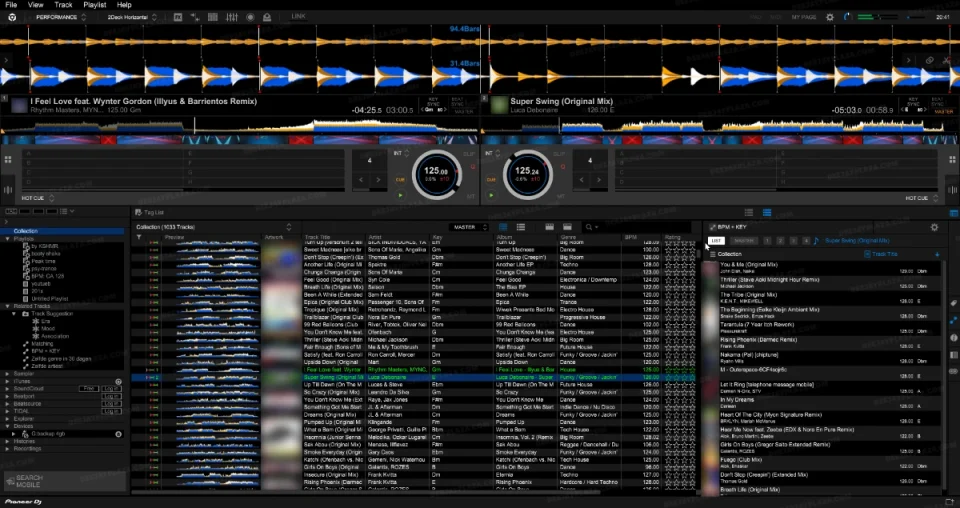
Live performance software
Live performance software on the other hand allows you to build a track live with samples and loops.
But mixing one song into another, is not really an option with this type of software.
Live performance software requires far more CPU power than traditional DJ software.
Especially effects like reverb and software synths are calculation intensive tasks for a processor.
I’m talking about software like Ableton Live and Apple Mainstage.
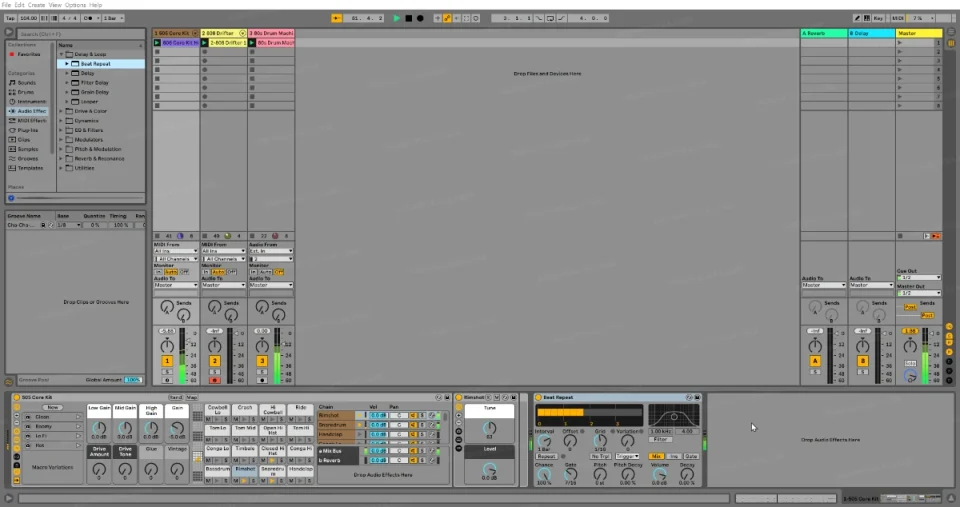
Free DJ tips in your inbox?
As a bonus gift I will send you a FREE E-book on how to kick-off your DJ career!
What is important?
When we are talking about traditional DJ software, all modern (< 7 years) mid-range processors are very capable of running DJ software, like the performance tests later in this article will show.
This is different for Live-performance-software.
A modern high-end processor is VERY important for good performance, otherwise your music starts to crackle during your live performance.
Generation of processors
Processor manufacturers like Intel bring a new line of processors on the market every single year.
To make a distinction in the year the processor came to market, they talk about the “generation” of processor.
So in 2022 they released the 12th gen processor, in 2023 the 13th gen, 2024 the 14th gen etc.
Every generation tends to be a bit quicker than the previous one.
When you buy a computer, always make sure to have the latest generation processor in your computer to enjoy the best performance.
Cores
You’ve probably hear of cores in a processor.
The more cores you have in a processor, the faster it is.
For DJ software, the core count doesn’t matter that much.
All modern processors have enough cores to handle DJ software.
For live performance software that is a bit of a different story.
Generally, the more cores the better.
But you won’t gain extra performance with more than 8 cores.
Desktop processors
Manufacturers make processors first for desktop computers.
Than they make components smaller so they can fit into the small case of a laptop.
So laptops are always a couple of months behind on desktops.
Meaning, that it is not uncommon to see brand new laptops with processors that are 2 years old.
Cooling
When we talk about processors for DJ, cooling might be an issue.
Especially in a club where things tend to get hot (yes, I mean literally).
Processors generate heat, which needs to be dissipated.
Because of the portable character, we DJs use laptops.
But laptops are generally not built to be cooled properly.
With that in mind, passively cooled laptops (laptops with no spinning fans) are not a good choice for a DJs.
Apple has a tendency to ditch fans entirely to make laptops quieter and cook an egg with it.
AMD, Intel or Apple?
RISC vs CISC
There are basically 2 types of processor chips on the market: RISC (Reduced Instruction Set Computer) and CISC (Complex Instruction Set Computer).
The details are not important, the only thing you need to know is that CISC processors are faster per clock-tick (Ghz).
Therefore CISC processors are also more power efficient, which is good for battery life.
AMD and Intel processors are RISC processors.
Apple’s M-chips are CISC processors.
Processors found in phones and tablets are CISC processors.
By definition CISC is faster than RISC, but due to tons of optimizations (amount of cores, amount of cache memory, branch prediction and much much more) it isn’t always as clear-cut as we’d like it to be.
You can’t look at RAW amount of GHZ to compare one processor with the other, even RISC or CISC processors amongst each other.
A better way is to look at real-world performance of specific chips to determine what the fastest processor is for DJing.
But, generally speaking, Apple’s M-chips are blowing AMD’s and Intel’s processors out of the water when it comes to performance and battery life.
AMD or Intel?
Traditionally Intel processors are the processors that have the widest support when it comes to software and hardware.
With this in mind, I have a slight preference for Intel processors.
For the last couple of years AMD and Intel are constantly playing a cat-and-mouse game to catch up with each other in terms of performance.
AMD has the tendency to be a bit cheaper here and there, but not much.
All major DJ software for the PC-platform nowadays runs on both Intel and AMD processors.
Mid-range and High-end processors
What are mid-range processors?
The Intel Core i5 (Core 5) processors and AMD Ryzen 5.
Mid-range processors suffice for DJ software.
What are high performance processors?
The Intel Core i7 (Core 7), Core i9 (core 9) and Xeon, and the AMD Ryzen 7 and 9.
The Xeon is meant for servers and not optimized for media tasks like hardware media encoding (which you don’t need for music).
The higher the number, the more powerful a processor is.
So the Core 7 has a higher number than Core 5, so the Core 7 is faster (and more expensive).
High performance processors are recommended for music production software (DAWs) and Live Performance software.
13th & 14th generation Intel processors
Avoid 13th and 14th generation Intel processors due to instability issues. (source)
Free DJ tips in your inbox?
As a bonus gift I will send you a FREE E-book on how to kick-off your DJ career!
Performance tests
Enough chit-chat, let’s put my money where my mouth is.
The following tests were done on an Intel Core i9 @ 3.7 Ghz 10th Gen desktop processor from 2020.
As you will see, an old i9 is already a complete overkill for DJing purposes.
The processor doesn’t even break a sweat.
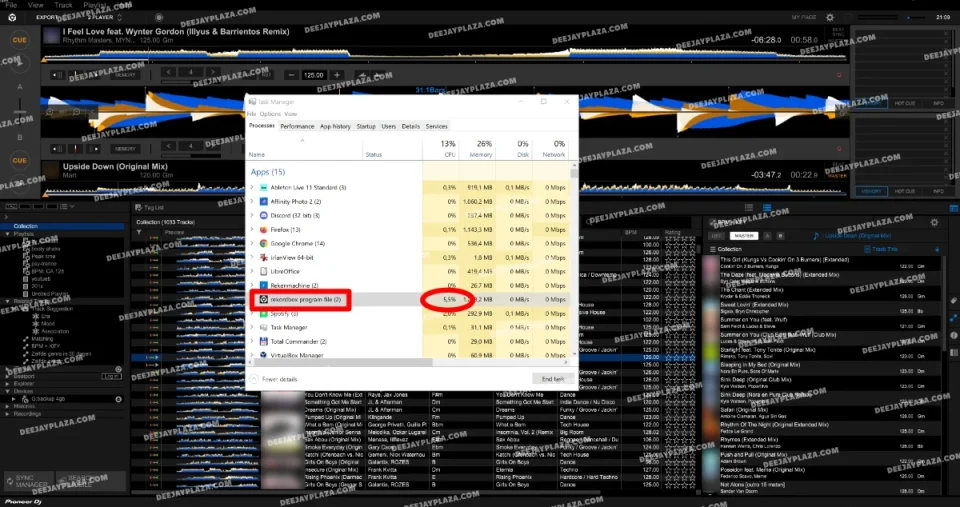
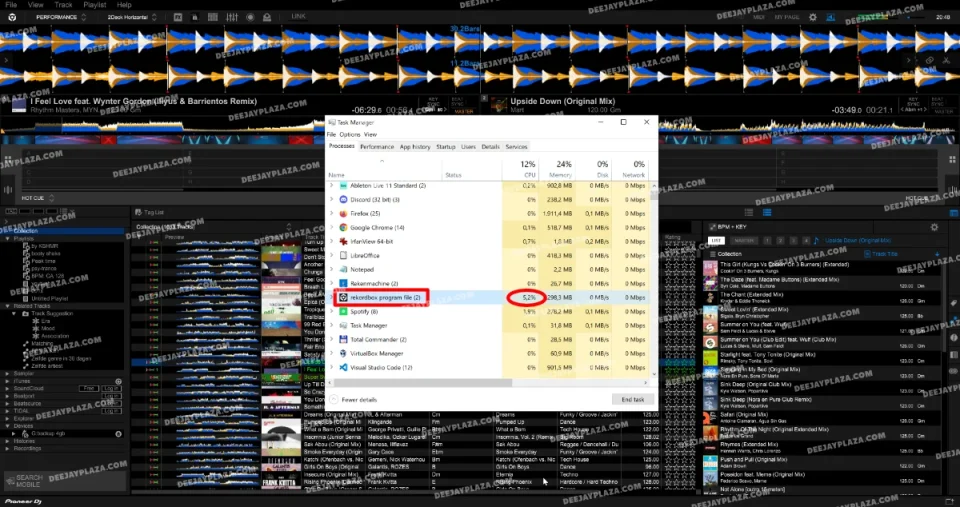
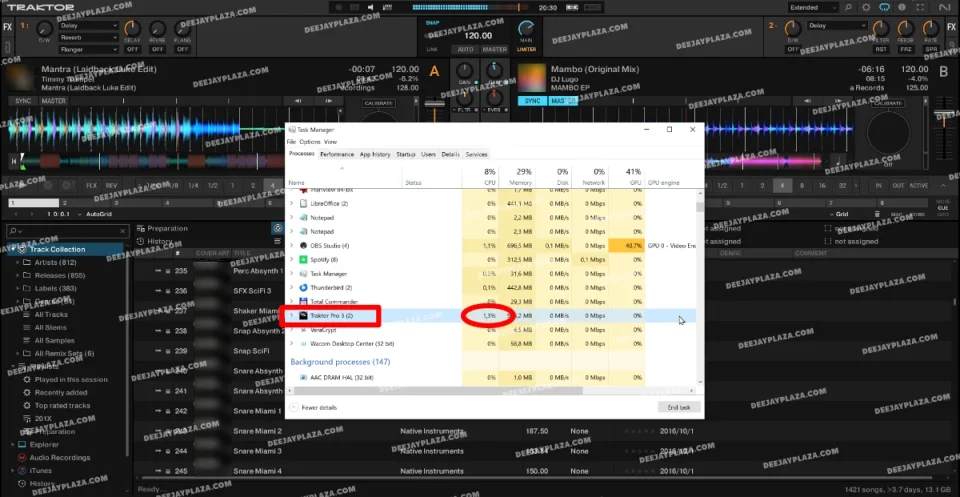
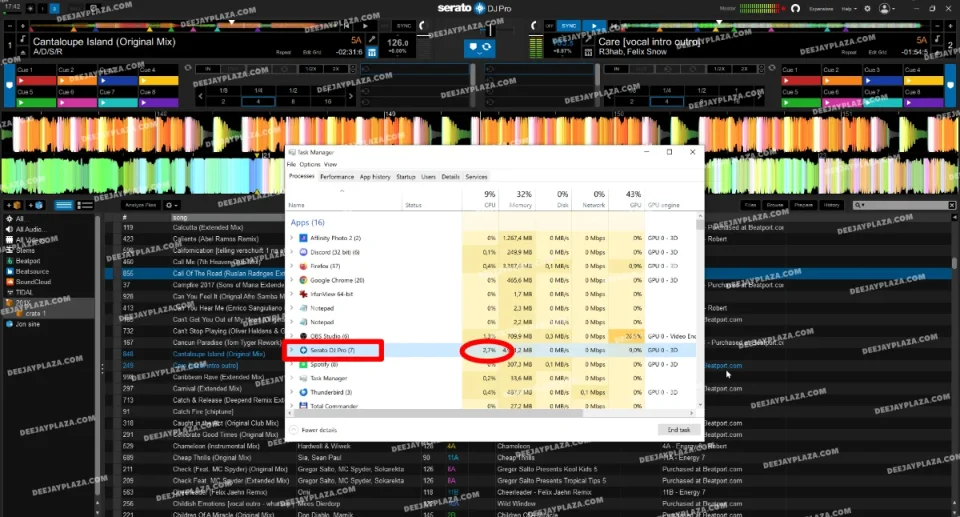
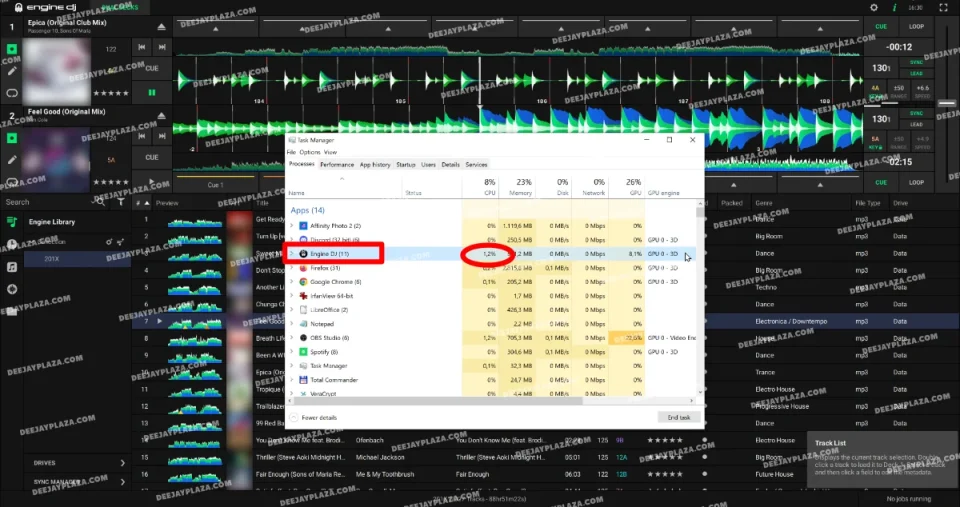
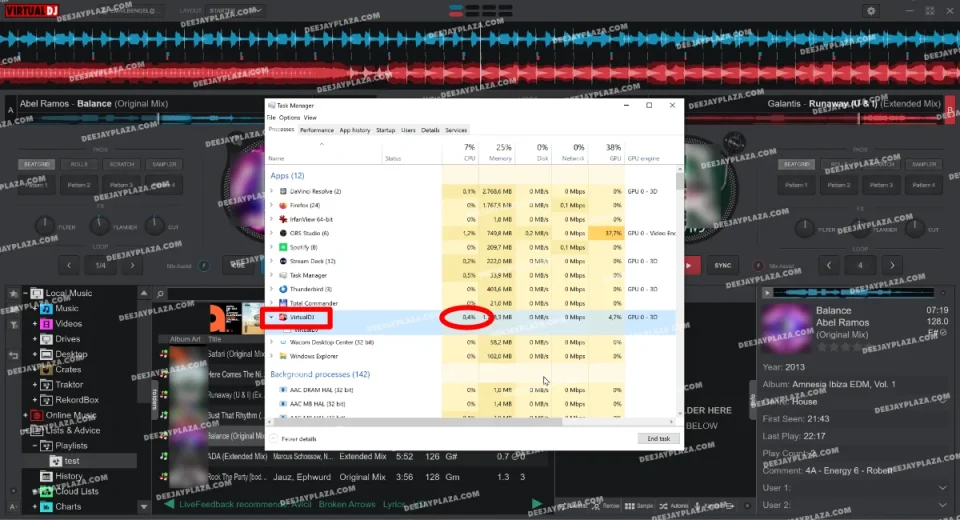
To make things a bit more interesting I also tested Rekordbox in the performance mode on an old Intel Core i5 @ 3.3Ghz 5th gen processor from 2015.
As you can see, things work perfectly fine, the processor has some performance to spare for other applications:
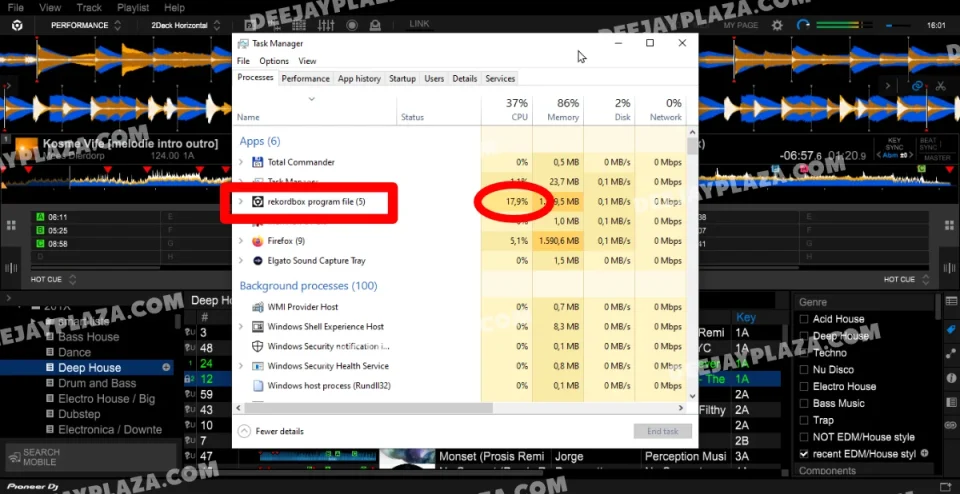
Conclusion
Intel Core 5 and Ryzen 5 processors are enough for DJ software like Rekordbox, Serato, Traktor etc.
Latest generation Intel Core 7 and 9 are recommended for music production and live performance software like Ableton Live and Apple Mainstage.
All Apple M-processors are perfectly capable of handling DJ software and live performance/music production software.
But choose one with a higher core count.
Read more
Rekordbox hard?
Don’t worry, I created a step-by-step video training to teach you all the ins and outs of Rekordbox.



